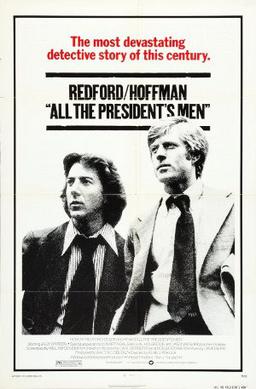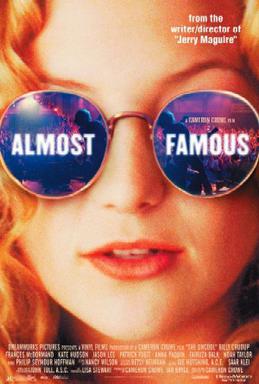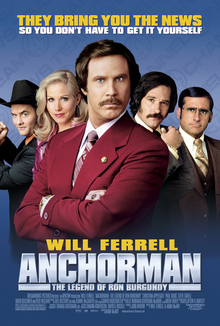This year WINOL has been extremely
successful in respects to the website, the focus of the term has been
switched from the bulletin towards focusing on the website and
increasing the amount of content, quality of the content and number
of articles being written to increase the number of viewers of the
website an improve its Alexa ranking, which we achieved. The current
Alexa ranking for WINOL.co.uk is 10,338 in the UK and 476,793
worldwide which is a vast improvement on previous years and months,
and is constantly falling. On the 27th of November the
websites UK ranking was at 21.900 which shows a drop of over 10,000
places in two weeks. I think this is because of the push for better
written stories and updating the website all week, rather than just
having a mass of stories hit the website on a Wednesday and then have
no more updates for the rest of the week, having recent stories makes
the website more current and actually gives people a reason to check
it daily.
The re-design of the website has been a
massive success, the new layout is much simpler to navigate and more
attractive to the eye. Sport on the website has been sparser than
news, partially because of a smaller reporting team and no dedicated
sports writers updating the pages throughout the week and because of
inconsistency within the team, some reporters would write and upload
their match reports or stories promptly when told whereas other would
not.
During the final week of the term WINOL
99 news was introduced. These short 99 second long daily updates
where a new project to provide a daily video update, although each of
these videos was only viewed between 47 and 105 times together
throughout the week they gained more views than the weekly bulletin
for the week. This can also be used to help explain the very quick
increase in the Alexa ranking for the website over the last 2 weeks,
these videos show that at least 47 people a day viewed the website to
watch the daily 99 second news update which can only be a positive
thing. After a bit more practice the production of these short
bulletins will become much more streamlined and it will become easier
for them to be produced, but this does add another daily deadline on
top of the weekly one for the bulletin and it is important these are
met.
The features section of the website and
the features team have been extremely good this semester. They have
been consistently producing well produced features including two
extremely good profile interviews, one with a elderly man who used to
Hitler's neighbour and another with Paul Blackburn who spent 20 years
in prison due to a miscarriage of justice. These two videos alone
have gained nearly 800 views on youtube. The features sections on the
website are varied and interesting ranging from fashion photo shoots
to confessional interviews and sports gonzo pieces, overall the
features have been well produced and have been a real credit to the
website.
The bulletin itself has been good this
year, in the first few weeks it was rocky because of the new
reporters getting to grips with new equipment and not knowing how to
properly structure packages. The first three packages are of good
quality because they were produced by experienced reporters, the 4th
package and the 'and finally' have many technical issues as does the
sport because of inexperienced reporters and a lack of correct
equipment. Although all the reporters received basic camera training
and an understanding of how to use them they lacked an understanding
of controlling sound, they did not know that radio microphones were
available and were still unsure about some fairly basic camera
functions. The technical ability of the reporters did improve but
editorially they were still weak, I believe this was because of a
lack of a bulletin focused debrief. Although we did receive a debrief
from the guest editors each week this does not give enough of a
focused review of the work for people to really improve editorially,
and myself and Dan, the news editor, also gave our teams feedback but
are not as detailed as Chris and Brian. I think that having these
focused sessions would have improved the quality of reporters
packages faster. Overall the quality of the packages did improve by
the end of the year with reporters learning to use sequences and
planning how they will structure their packages.
The production team was well run and
organised on Wednesday and the bulletin was uploaded promptly, before
five, each week which helped the bulletin views, which although were
lower than normal were not terrible, the highest number of views the
bulletin reached was 246 views, and the lowest gained only 43 views.
There was a lack of production help on a tuesday during the filming
of Sportsweek, although myself and Graham, the production editor,
were experienced enough to produce the show ourselves there was a
lack of focus and urgency towards sportsweek, especially when
compared to the bulletin.
We have produced several special shows
this semester, which I have been heavily involved in, including the
coverage of the US election results, live coverage of the Hampshire
Police and Crime Commissioner debate and producing an awards ceremony
for the yearly British Journalism Training Council Awards. For the US
elections I used the tricaster, a portable vision mixer, to live
stream the output from the gallery to Ustream. This was the second
time I had used the tricaster for this, the first being for the
Hampshire Police and Crime Commissioner debate. The stream was
successful although it did suffer sounds issues which were either due
to a poor connection between the tricaster and the sound desk or a
problem with the way the tricaster was pushing the sound to youtube.
Although the stream had sound issues it was active for the two hours.
The special itself was successful, although the planning had to be
changed at the last minute because the result was announced before
the broadcast. The highlight of the output were the Skype calls from
America, we have tried several of these before, not from america, and
it is very rare that they work live or are good enough quality to
broadcast.
The second special I mentioned was the
Hampshire Police and Crime Commissioner debate, I was heavily
involved with the production of this event, leading the production
team. This event was extremely well organised by Louis O'brien and he
managed to get all 6 candidates and an audience of nearly 300 people
to the university for the debate. As with the US elections I set up
the tricaster to live stream the debate, this time with three
cameras. We also set up two separate cameras for use in the final
edit as well. The stream was live for the hour and a half that the
debate ran for. Throughout the debate I live mixed between the three
cameras, because there was no ability to have talkback it meant that
I couldn’t communicate with the camera operators, this meant that
we have to designate shots for each camera. This was a simple
solution but was by no means perfect because. The stream was viewed
by nearly 300 people when it was active.
The third special that I mentioned was
the BJTC awards. Again as with the HPCC debate I lead the production
of this project which was a large undertaking. The show had been
partial organised as far as a venue had been arranged and then
presenter and guests were organised, but all the live and video
production work was left to me to organise. The final production
included 6 cameras, a vt operator, sound, lighting, Autocue and the
project was directed by Angus Scott. As well as prepping the
production team and working on the script with Angus I also produced
close to thirty minutes of video which was to be played during the
show, these videos were a big challenge because they had to be played
to match the presenter, Alistair Stewart, as he announced the
nominees, winners and cued several video clips of the nominated
projects. I edited several versions of each video for each section
before discovering a system that worked. The show was a success and
nearly went off completely without a hitch, the only issue came about
because some of the nominees were late and Alistair failed to cue
some of the videos. After the event I also edited the footage from
all 6 cameras together into a 20 minute video of the awards show,
there were several challenges while editing, there were major sound
issues which took 9 hours to resolve. These projects where a massive
undertaking and took up a lot of time, especially the BJTC awards,
but they have helped to raise the profile of the course and WINOL
within the university and to future employers who were at the
ceremony.
My main role within WINOL was sports
editor which means that I was responsible for the sports output on
the bulletin as well as producing the weekly sports show, Sportsweek.
Overall I am happy with the semesters sports coverage although there
are several ways in which it could have been improved. Firstly I had
the challenge of gaining access to the clubs who let us film, most
were extremely cooperative and happy to have us back but Eastleigh FC
demanded that we get a football conference photography license. To
obtain this I first had to gain a copy of the university insurance
policy and send that to the conference league, I eventually obtained
the license and gained access back into the club, but during the
period that we could not gain access it was difficult to have enough
content to fill sportsweek.
Due to a lack of home fixtures, the
only ones we can film, and a shortage of reporters due to personal
reasons I found that I would often have to produce packages and
interviews to fill time to have enough content to fill sportsweek.
The lack of fixtures also meant that reporters would often have to
find news stories or produce sports based features to make sure they
produced a package each week, this started of well with reporters
finding stories to pitch in the sports meetings but lost momentum as
the term went on for reasons I can't really place.
The quality of the sports coverage was
fairly poor to begin with, as can be expected, but I tried to get the
quality up as quickly as possible to provide the best service
possible to the clubs. The quality did improve quickly as the
reporters got used to filming sport and with my help they improved
their scripting, which is a difficult skill to master in sport. One
problem I encountered early on was reporters not finishing their
packages early and putting pressure on me to get sport ready for the
bulletin, because of this I introduced a sports board, like the news
board, which set out which match the reporter would go to each week,
set them times for their packages and most importantly deadlines,
which were mostly met.
One change to the sports this semester
was that we pre recorded the sports output for the bulletin each
week, this decision was made because of the new desk which was too
small for two presenters to sit at. This put a lot of pressure on me
on a wednesday because while trying to finish the sportsweek
production and make sure that the packages were up to a good quality
and edit the sports for the bulletin.
The audience for sportsweek varied a
lot and was mainly reliant on twitter and if the football clubs
retweeted the links to their followers. The Basingstoke Bison videos
continued to get good viewing figures with two videos getting around
500 views each, but again these figures fluctuated and I failed to
get any consistency in the audience figures. I did try to gain access
to several football and ice hockey forums to try to get a consistent
audience but the registration was refused so I could not post the
links which would have increased the number of views.
 Regarded as one of the greatest films ever made Orson Welles
plays Charles Foster Kane, a newspaper magnate, telling the story of his life
pieced together through a number of flashbacks as reporters search for the
answer to the question – what is Rosebud.
Regarded as one of the greatest films ever made Orson Welles
plays Charles Foster Kane, a newspaper magnate, telling the story of his life
pieced together through a number of flashbacks as reporters search for the
answer to the question – what is Rosebud.  It would be hard to not include the film based on one of the
most influential pieces of journalism ever written, I mean the Watergate
brought down the president of the United States.
It would be hard to not include the film based on one of the
most influential pieces of journalism ever written, I mean the Watergate
brought down the president of the United States.  Aspiring journalist William Miller (Patrick Fugit) gets his
big break when Rolling Stone ask him to cover Stillwater as they tour America.
Aspiring journalist William Miller (Patrick Fugit) gets his
big break when Rolling Stone ask him to cover Stillwater as they tour America.  The film that got a whole generation yelling “I'm
as mad as hell, and I'm not going to take this anymore!"
The film that got a whole generation yelling “I'm
as mad as hell, and I'm not going to take this anymore!"  This adaptation of Hunter S Thompson’s novel by the same
name tells the story of Raoul Duke (Johnny Depp) and his attorney, Dr. Gonzo
(Benicio del Toro) as they travel to Las Vegas to report on the Mint 400.
This adaptation of Hunter S Thompson’s novel by the same
name tells the story of Raoul Duke (Johnny Depp) and his attorney, Dr. Gonzo
(Benicio del Toro) as they travel to Las Vegas to report on the Mint 400.  While this may be a little more low brow than the other
films its hard to argue that Anchorman shouldn’t be on this list at the end of
the day it’s a great film about journalism, sort of.
While this may be a little more low brow than the other
films its hard to argue that Anchorman shouldn’t be on this list at the end of
the day it’s a great film about journalism, sort of.